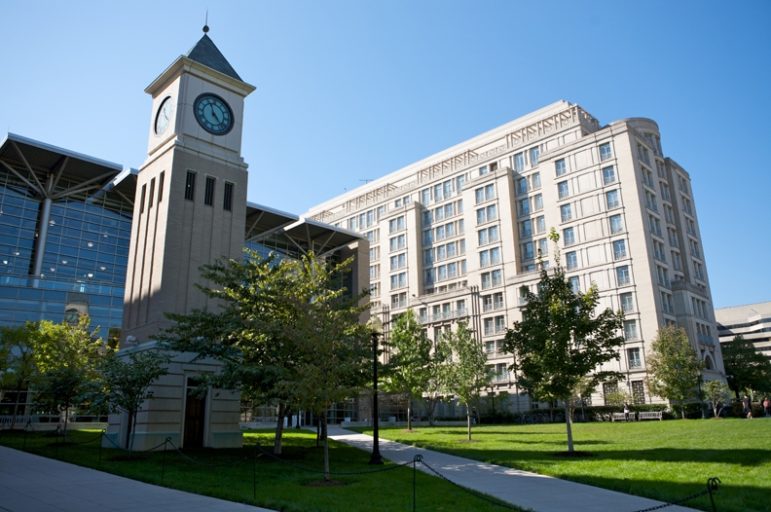
June 23, 2016; Time Magazine
In 1838, Jesuit priests, running what is today known as Georgetown University, sold 272 slaves in a bid to raise money to save their fledgling school. These shackled men, women, and children spent the rest of their brutalized lives working plantations in Iberville and Ascension parishes in Louisiana.
Driving back to her hometown of Maringouin to visit a relative in February, Maxine Crump picked up her cell phone to answer a call. In that moment, her understanding of her family history changed forever.
The stranger on the other end had a question: Did the name Cornelius Hawkins mean anything to her? Crump, a former Baton Rouge television news anchor turned community activist, responded that the name Cornelius had been passed down through her family for several generations.
Richard Cellini, the man who called, then revealed his startling news: He was convinced the name belonged to a 13-year-old boy who was sold in 1838 by the Jesuit priests, along with hundreds of other slaves, to raise money to save the school that would become Georgetown University. That boy, who like the other slaves ended up at a Louisiana plantation, turned out to be the 69-year-old Crump’s great-great-grandfather.
Sign up for our free newsletters
Subscribe to NPQ's newsletters to have our top stories delivered directly to your inbox.
By signing up, you agree to our privacy policy and terms of use, and to receive messages from NPQ and our partners.
—“It’s A Puzzle,” by Terry Jones for the Advocate (Baton Rouge, LA)
Georgetown University’s president, John J. DeGioia, is exploring how to make institutional amends for the sale of these slaves. Late last year, Georgetown vowed to remove from two buildings the names of two past presidents who played a role in the sale of the slaves. DeGioia announced in February that the university would expand its faculty in African American studies and establish a research center focused on racial injustice, but DeGioia is intent on doing more to investigate and redress the university’s past embrace of and trade in slavery.
The independent nonprofit Georgetown Memory Project (GMP) leads this ethical audit of the storied Roman Catholic institution. GMP’s website claims that despite the university’s assertion that the slaves “perished without a trace,” hundreds of the slaves survived and thousands of their descendants have been identified. This week, DeGioia plans to go to Louisiana to meet with some of the slaves’ heirs—and they will be ready for him, as this recent article in the Advocate suggests. This brings the possibility of amends to a very practical level.
The university’s working group on “Slavery, Memory and Reconciliation” is finalizing a report, a draft of which DeGioia has reviewed.
Georgetown University is not unique. In NPQ’s piece a few months ago about Georgetown, we also addressed Harvard University’s complicity in eugenics and its association with slaveholders.—Ruth McCambridge













